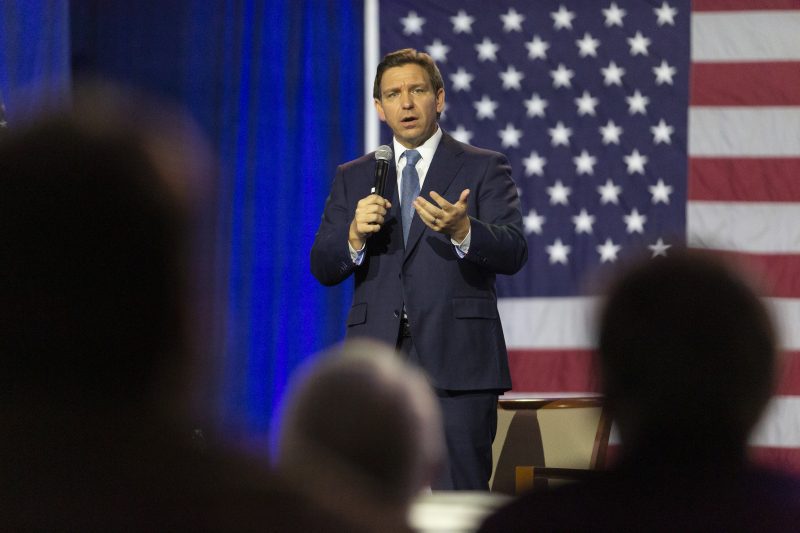Florida Gov. Ron DeSantis (R) has called Russian President Vladimir Putin a “war criminal,” marking a hardening in his stance against Russia’s invasion of Ukraine after drawing criticism last week from fellow Republicans for dismissing the conflict as a “territorial dispute.”
In an interview with “Piers Morgan Uncensored,” which is due to air Thursday on Fox Nation, the potential presidential contender clarified that he fully opposed Putin’s invasion, aligning himself more closely with other Republicans — and distancing himself from previous comments that he said had been “mischaracterized.”
“Obviously, Russia invaded [last year] — that was wrong,” DeSantis said, according to a preview of the interview in a column published Wednesday in the New York Post. “Russia did not have the right to go into Crimea or to go in February of 2022 and that should be clear.”
The latest statements from DeSantis, who has not yet announced his candidacy for president, highlight the growing divide within the GOP over how Washington should respond to the Russian invasion and the amount of U.S. aid to Ukraine in the ongoing war.
Last week, DeSantis was fiercely criticized by members of his own party for describing the war as “a territorial dispute between Ukraine and Russia,” in which it was not in Washington’s interest to become further entangled. DeSantis’s comments echoed the position of former president Donald Trump, who has said that opposing Russia is a key interest for Europe, “but not for the United States.”
The flurry of criticism highlighted the potential for Ukraine to become a key dividing line among Republican presidential contenders ahead of the 2024 election. In comments published last week, Trump argued that the two sides should negotiate a deal and said that opposing Russia was not a vital American national interest.
Former vice president Mike Pence, who is weighing a 2024 presidential campaign, rejected DeSantis’s original characterization of the war in Ukraine, telling ABC News: “It’s a Russian invasion. It’s just the latest incidence of Russia attempting to redraw international lines by force.”
In Thursday’s interview, DeSantis took direct aim at Putin, according to a clip. “He is a war criminal,” DeSantis said. “I do think he should be held accountable.” He was referring to last week’s decision by the International Criminal Court to issue an arrest warrant for the Russian leader. The court has accused Putin of war crimes for the “unlawful deportation” and “unlawful transfer” of children from occupied areas of Ukraine.
In DeSantis’s previous comments, he said the United States “cannot prioritize intervention in an escalating foreign war over the defense of our own homeland, especially as tens of thousands of Americans are dying every year from narcotics smuggled across our open border, and our weapons arsenals critical for our own security are rapidly being depleted.”
DeSantis also said that Washington should not provide Kyiv with any military assistance that would allow Ukraine to launch offensives beyond its borders, ruling out sending F-16 fighter jets or long-range missiles.
DeSantis’s comments last week also contrasted with his own words and actions when he was a congressman from Florida. In 2014, DeSantis voted for an aid package for Ukraine and backed a 2015 resolution that called on Russia to withdraw from Ukraine while authorizing security assistance for Kyiv.
DeSantis’s campaign did not immediately respond to a request for comment.
While DeSantis’s shift in tone will probably be welcomed by his Republican critics, it opened him up to more criticism Thursday from Democrats.
“DeSantis stumbling over this answer makes clear he is out of his depth,” the Democratic National Committee said in a statement.
The statement included pushback against his earlier comments from several Senate Republicans, including John Cornyn (Tex.), Lindsey O. Graham (S.C.), Marco Rubio (Fla.) and Roger Wicker (Miss.).
Leo Sands, John Wagner, Dan Lamothe and Meryl Kornfield contributed to this report.








